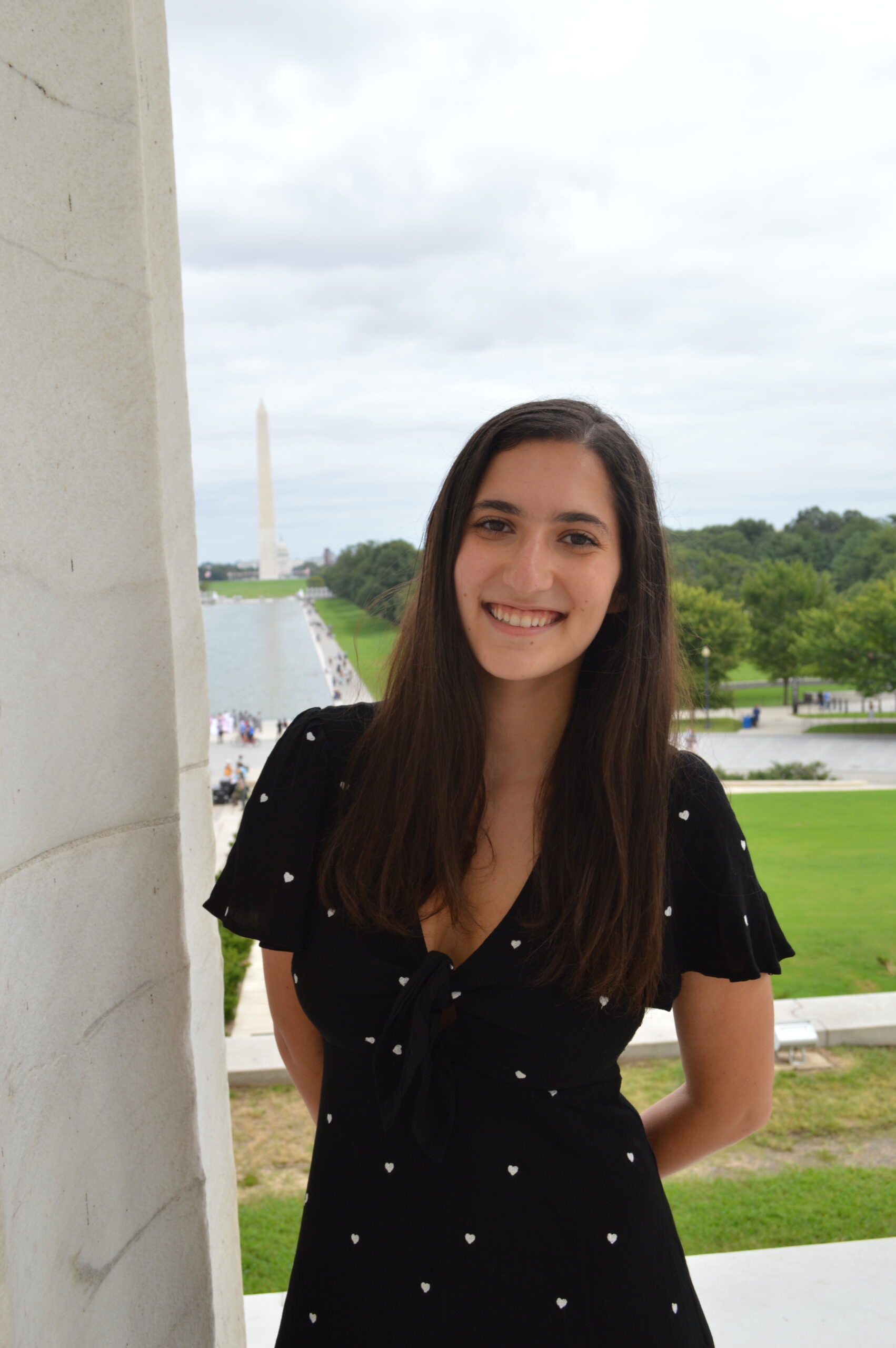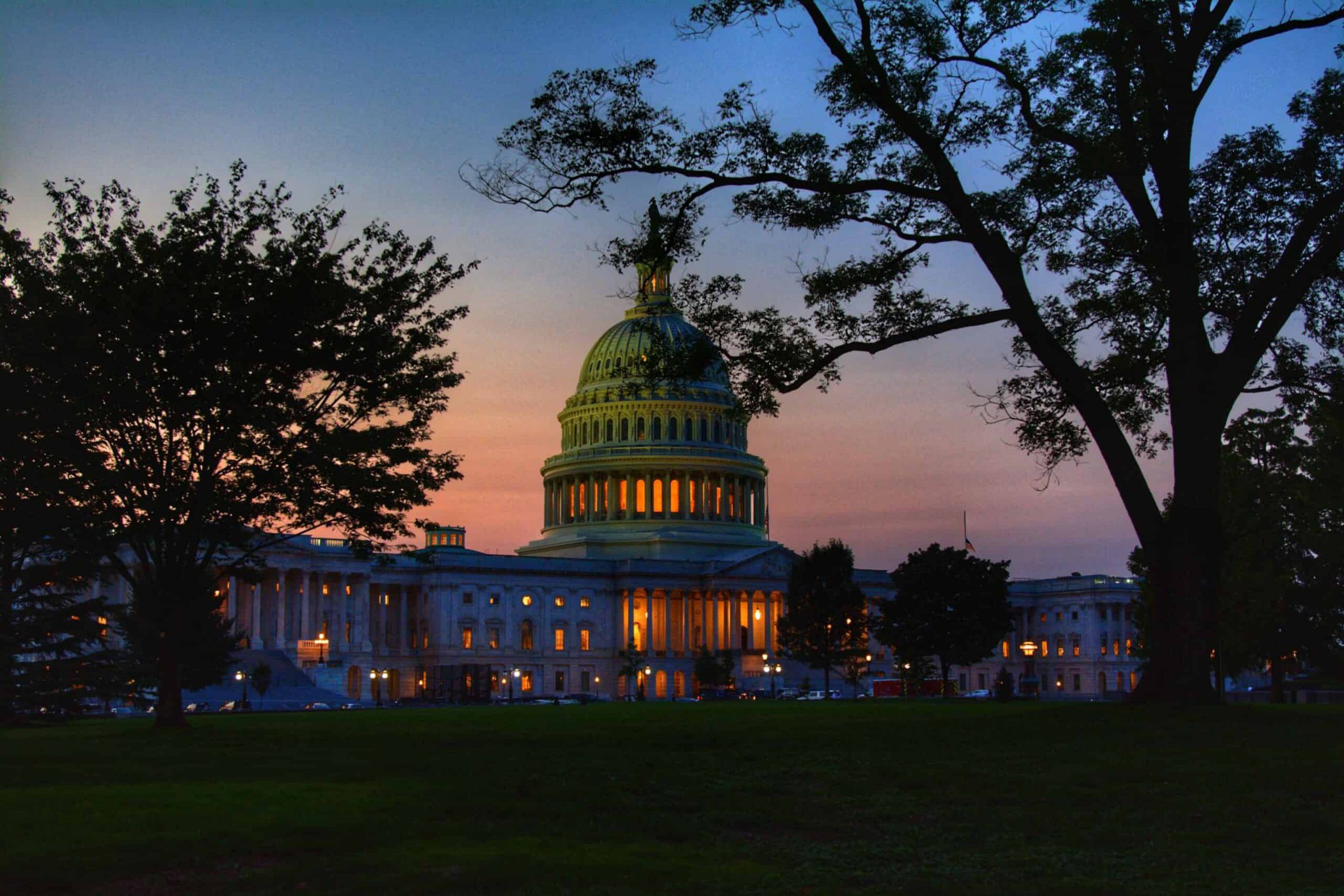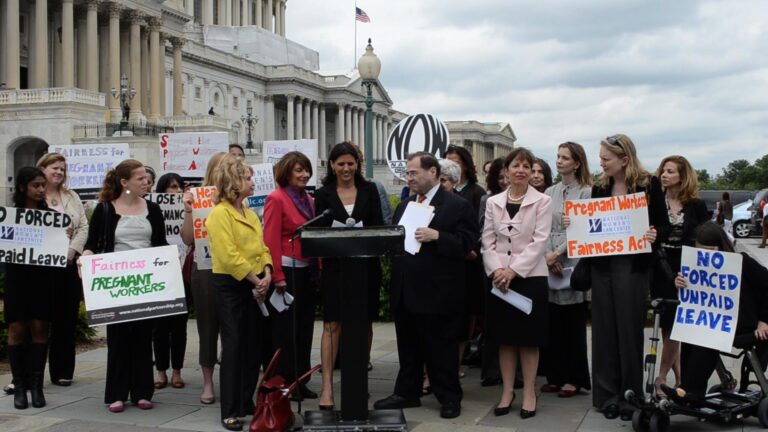
Ellie Samuels is a student at Harvard Law School.
In 2018, a New York Times investigation revealed that swaths of pregnant women have miscarried, gone into premature later, or delivered stillbirths after being denied basic workplace accommodations. The women worked for a variety of employers—including a hospital, an airport, a fire department, and a grocery store. Their stories are not uncommon; U.S. employers have routinely ignored pregnant employees’ doctor’s notes, forced them to take unwanted leave, and denied them accommodations as simple as a water bottle. Until last year, these denials were legal under federal law.
Thankfully, Congress enacted the Pregnant Workers’ Fairness Act (PFWA) in June 2023. Modeled after the Americans with Disabilities Act (ADA), the PWFA is the first federal law guaranteeing all pregnant workers get reasonable accommodations in the workplace. The law passed only six months after the Supreme Court eliminated the constitutional right to abortion in Dobbs. The PWFA built on decades of prior workplace protections and passionate bipartisan advocacy, with lessons for other movements and the potential to advance maternal health and workplace equality.
Before its passage, the PFWA had been stalled in Congress for over a decade. Today’s Congress is bitterly partisan and unproductive. So what explains the PWFA’s passage?
Victory in Congress
As detailed in my previous blog, until 2023, federal law did not require employers to accommodate all workers with relatively healthy pregnancies (while those with pregnancies that qualify as a disability are covered by the ADA). This policy gap forced workers with relatively healthy pregnancies to take unpaid leave or quit. The loss of income and employer-provided healthcare can be life-threatening in a country with rapidly deteriorating maternal healthcare. Dobbs has raised the already-high stakes: without sufficient reproductive rights protections, women canbe legally forced into pregnancy and delivery and then legally denied necessary maternal healthcare. Pregnant workers who stay employed often brave unsafe working conditions that can jeopardize their health and their pregnancies.
It’s thus more critical than ever that pregnant women have consistent healthcare access and are not subjected to unhealthy and unsafe working conditions. New York City passed the first Pregnant Workers Fairness Act in 2013; the first statewide PWFA passed in New Jersey in 2014. By 2022, thirty states had enacted some version of the law, including deep red states like Kentucky and Louisiana. The federal PWFA was introduced, stalled, and reintroduced multiple times from 2012 to 2022. The law passed 73-24 in an intensely divided Congress.
Each party articulated notably different reasons for support. Upon the law’s passage, Republican sponsor Senator Bill Cassidy (R-LA), a staunchly anti-abortion former physician, declared the law to be “pro-mother, pro-life and pro-family,” and noted the support of businesses. Meanwhile, the other lead cosponsor, Democratic Senator Bob Casey (D-PA), focused on women’s and workers’ rights, proclaiming the PWFA is crucial for “removing barriers to women’s full and complete participation in the workforce.” Senator Casey is one of the few remaining “pro-life” Democrats in Congress, although he has increasingly voted in support of reproductive rights measures, including supporting the Women’s Health Protection Act, which would have codified Roe v. Wade.
Bipartisanship after Dobbs
The state of reproductive rights has loomed large in the bill’s enactment and enforcement. Senator Cassidy publicly blasted the EEOC for including abortion as one of the “related medical conditions” in their Notice of Proposed Rulemaking (NPRM) for enforcing the PWFA. Cassidy argued the decision was “rogue” and “illegal,” although federal courts have routinely upheld the similar inclusion of abortion in the Pregnancy Discrimination Act. The NPRM was also opposed by 20 Republican Attorneys General and conservative organizations like the Alliance Defending Freedom.
Yet it seems undeniable that the Dobbs decision factored into Republicans’ passage of the PWFA. Abortion bans are deeply unpopular, and while the Republican party might be able to foist their unpopular policies on the majority through unelected, unaccountable judges, these policies lose at the ballot box. Over and over and over. It’s increasingly difficult for the “pro-life” party to claim the moniker when the visible consequences of “pro-life” policies are death, suffering, neglect, illness, and imprisonment. The PWFA represented a perfect chance for Republicans to posit they do, in fact, care about women and families. The law also had, due to relentless organizing by advocates, support from influential conservative stakeholders, including the Chamber of Commerce and United States Conference of Catholic Bishops. That doesn’t mean Republican support was not contentious. Some House Republicans made moves to stall the law over a lack of religious exemptions. Meanwhile, the far-right section of the party seems dead-set on pushing women out of the workforce altogether.
Conversely, the Democratic case for the PWFA as a post-Dobbs measure is seemingly straightforward. The law furthers the rights of pregnant people in a time when reproductive rights are under threat and maternal mortality is soaring. It was championed by major labor unions, civil rights organizations, and racial justice groups. Yet, as Professor Naomi Schoenbaum explains elsewhere on this blog, Senate Democrats stalled a vote on the PWFA to “both deny Republicans a win with women and to avoid the appearance that the law was Democrats’ response to Dobbs.” POLITICO reported that the PWFA had been teed up for expedited consideration but was quickly sidelined after Dobbs to “avoid the perception that it was the party’s response to the news.”
Advocates expressed extreme frustration with the delay. PWFA champion Dina Bakst, the executive director of A Better Balance, told the Nation that “Congress has done nothing for women,” noting the lack of progress on childcare and family leave, let alone a robust pro-abortion response to Dobbs. Senate majority leader Chuck Schumer insisted the holdup was due to Republicans like Senator Rand Paul failing to agree on a vote time. Finally, the bill was pushed through in December 2022 as an amendment to an omnibus spending package, earning five more votes in the Senate than the appropriations bill itself.
What will follow the PWFA?
Dobbs was a catastrophic blow to an already suffering reproductive rights landscape. Whether or not the law’s proponents admit that PWFA is a Dobbs response, the PWFA furthers reproductive justice and maternal health in a time of acute crisis. The law is no substitute for the right to abortion, but essential in its own right, closing policy gaps that had prevented full gender equity in the workforce and jeopardized the health of pregnant workers.
The success of the PWFA shows that there is hope for legislation at the intersection of women’s rights, family well-being, and workplace equity. One issue the PWFA might have paved the way for is paid leave. Last month, a bipartisan group of legislators, including PWFA leads Senators Cassidy and Casey, met to negotiate a new paid leave policy, similar to what already exists in eleven states. Proponents seem to be following a similar playbook to the PWFA, appealing to businesses, and emphasizing a family-centric angle that appeals to both parties. Other issues like childcare could follow a similar path—there have been a number of bipartisan measures passed across red and blue states. Hopefully the PWFA is not an anomaly of bipartisan cooperation but signals a new era of post-Dobbs legislation that prioritizes the long-neglected health and wellbeing of women, workers, and families.








Daily News & Commentary
Start your day with our roundup of the latest labor developments. See all
July 2
Block, Nanda, and Nayak argue that the NLRA is under attack, harming democracy; the EEOC files a motion to dismiss a lawsuit brought by former EEOC Commissioner Jocelyn Samuels; and SEIU Local 1000 strikes an agreement with the State of California to delay the state's return-to-office executive order for state workers.
July 1
In today’s news and commentary, the Department of Labor proposes to roll back minimum wage and overtime protections for home care workers, a federal judge dismissed a lawsuit by public defenders over a union’s Gaza statements, and Philadelphia’s largest municipal union is on strike for first time in nearly 40 years. On Monday, the U.S. […]
June 30
Antidiscrimination scholars question McDonnell Douglas, George Washington University Hospital bargained in bad faith, and NY regulators defend LPA dispensary law.
June 29
In today’s news and commentary, Trump v. CASA restricts nationwide injunctions, a preliminary injunction continues to stop DOL from shutting down Job Corps, and the minimum wage is set to rise in multiple cities and states. On Friday, the Supreme Court held in Trump v. CASA that universal injunctions “likely exceed the equitable authority that […]
June 27
Labor's role in Zohran Mamdani's victory; DHS funding amendment aims to expand guest worker programs; COSELL submission deadline rapidly approaching
June 26
A district judge issues a preliminary injunction blocking agencies from implementing Trump’s executive order eliminating collective bargaining for federal workers; workers organize for the reinstatement of two doctors who were put on administrative leave after union activity; and Lamont vetoes unemployment benefits for striking workers.